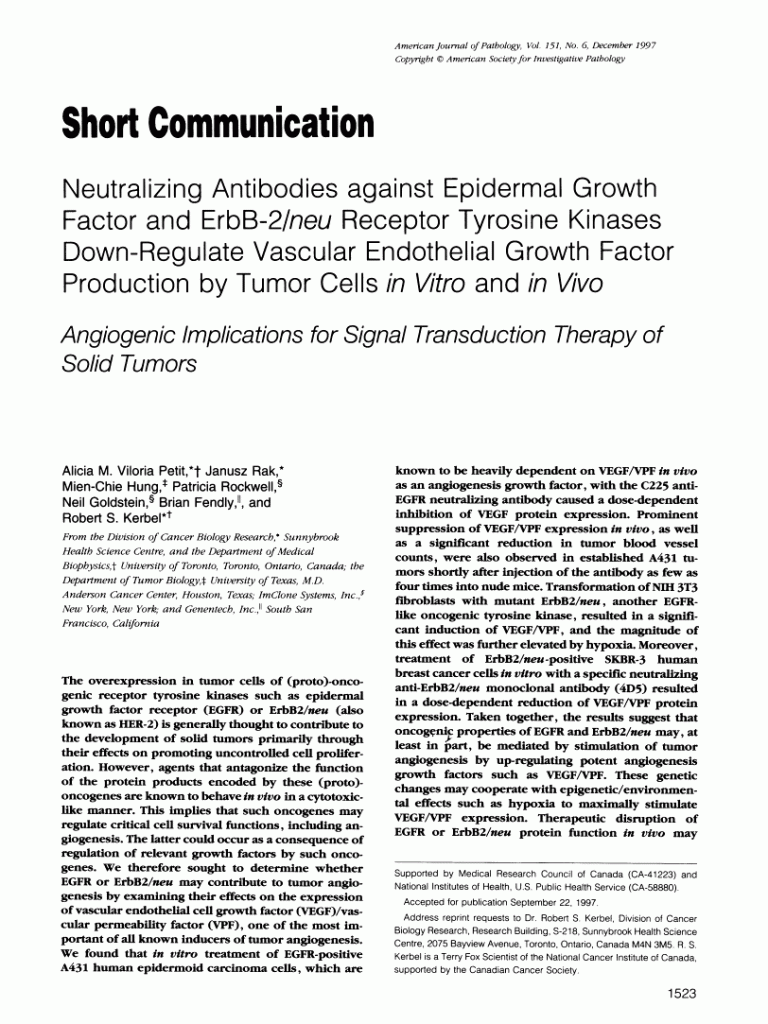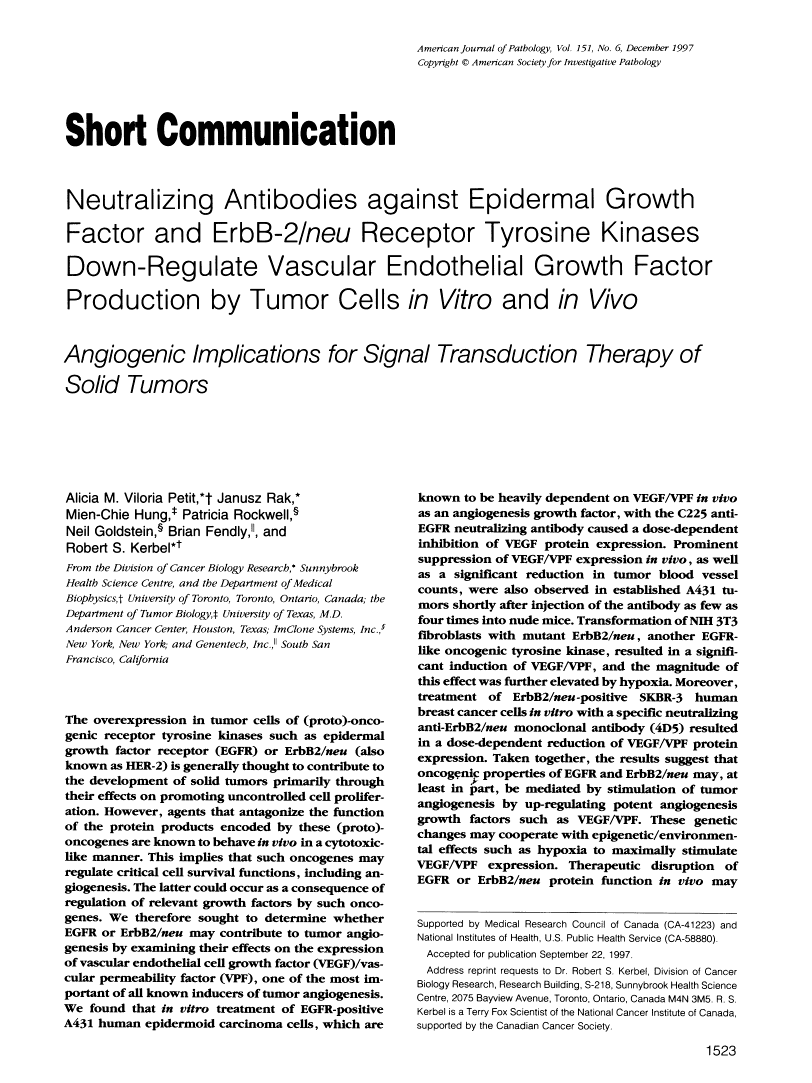The overexpression in tumor cells of (proto)-oncogenic receptor tyrosine kinases similar to epidermal development issue receptor (EGFR) or ErbB2/neu (often known as HER-2) is mostly thought to contribute to the event of strong tumors primarily by means of their results on selling uncontrolled cell proliferation.
Nevertheless, brokers that antagonize the perform of the protein merchandise encoded by these (proto)-oncogenes are identified to behave in vivo in a cytotoxic-like method. This suggests that such oncogenes might regulate crucial cell survival capabilities, together with angiogenesis.
The latter may happen as a consequence of regulation of related development components by such oncogenes. We due to this fact sought to find out whether or not EGFR or ErbB2/neu might contribute to tumor angiogenesis by inspecting their results on the expression of vascular endothelial cell development issue (VEGF)/vascular permeability issue (VPF), one of the vital essential of all identified inducers of tumor angiogenesis.
We discovered that in vitro therapy of EGFR-positive A431 human epidermoid carcinoma cells, that are identified to be closely depending on VEGF/VPF in vivo as an angiogenesis development issue, with the C225 anti-EGFR neutralizing antibody brought about a dose-dependent inhibition of VEGF protein expression.
Distinguished suppression of VEGF/VPF expression in vivo, in addition to a big discount in tumor blood vessel counts, had been additionally noticed in established A431 tumors shortly after injection of the antibody as few as 4 instances into nude mice.

Transformation of NIH 3T3 fibroblasts with mutant ErbB2/neu, one other EGFR-like oncogenic tyrosine kinase, resulted in a big induction of VEGF/VPF, and the magnitude of this impact was additional elevated by hypoxia.
Furthermore, therapy of ErbB2/neu-positive SKBR-Three human breast most cancers cells in vitro with a particular neutralizing anti-ErbB2/neu monoclonal antibody (4D5) resulted in a dose-dependent discount of VEGF/VPF protein expression.
Taken collectively, the outcomes counsel that oncogenic properties of EGFR and ErbB2/neu might, no less than partially, be mediated by stimulation of tumor angiogenesis by up-regulating potent angiogenesis development components similar to VEGF/VPF.
These genetic adjustments might cooperate with epigenetic/environmental results similar to hypoxia to maximally stimulate VEGF/VPF expression.
Therapeutic disruption of EGFR or ErbB2/neu protein perform in vivo might due to this fact end in partial suppression of angiogenesis, a characteristic that would improve the therapeutic index of such brokers in vivo and endow them with anti-tumor results, the magnitude of which can be out of proportion with their noticed cytostatic results in monolayer tissue tradition.

